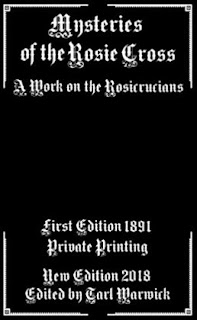This strange work was crafted by a man who, upon brief investigation, is one of the most enigmatic figures in the occult which I have encountered. A relatively high class lawyer of the 19th century, Hatch' best known work wasn't even written by him, and was made posthumously via automatic writing. This text contributes to the sense of oddity in the case of the author, since it claims to be hermetic but essentially smashes a dozen or so apparent occult ideologies together, openly professing that it is a symbolic work which must be understood in the non-literal sense, much like the Steganographia of Trithemius.
It is well written but highly theatrical in its language usage and flow, so those intrigued by plays and poetry will probably enjoy it more than those looking for a dry academic work.
57 pages.





